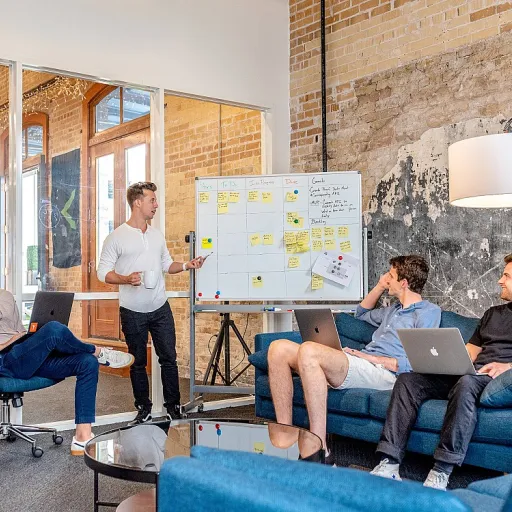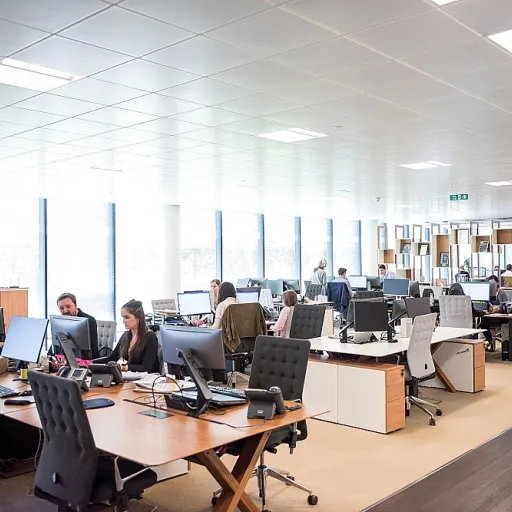
Understanding the Need for Time Management in Architecture
Recognizing the Importance of Time Management
In the world of architecture, meticulous time management isn't just a nice-to-have—it's an absolute necessity. With projects often stretching across numerous phases and involving multiple team members, tracking time becomes a fundamental aspect of maintaining efficiency and accountability. For architecture firms, effective time tracking is crucial. Architects often juggle numerous projects simultaneously. Proper management of time ensures that each project meets its deadlines while also respecting the budget constraints. Efficient time tracking contributes to more accurate billing and resource allocation, helping firms keep a close eye on billable hours and project costs. This is particularly vital for small businesses and a&e firms, where every hour counts toward the bottom line. Implementing advanced time tracking software can significantly streamline this process. By utilizing digital tools, teams can record time spent in real time and generate detailed reports. These insights inform better project management decisions and allow firms to optimize their operations. Offering features like automatic tracking, reporting capabilities, and integration with accounting software, time tracking tools can transform how architectural practices oversee their operations. In doing so, firms not only enhance efficiency but also strengthen their competitive edge in a fast-paced market. To explore the profound impact time tracking can have on your firm and to implement strategies that bolster your efficiencies, consider the insights in this article and read more about enhancing efficiencies with a shared services approach. Delving into comprehensive solutions will be key to mastering the challenges of time tracking.Key Features of Effective Time Tracking Software
Key Aspects to Look For in Time Management Tools
Effective time tracking software is essential for architecture firms seeking to enhance project management and operational efficiency. These tools help track time spent on various tasks, ensuring that every billable hour is accounted for. Here are some crucial features to consider when selecting the right software for your firm.- Real-Time Tracking: Real-time tracking capabilities allow teams to monitor time spent on tasks as they happen. This feature is especially beneficial for a&e firms looking to manage projects more efficiently and address time expenses accurately.
- Project Management Integration: A seamless integration with existing project management systems is vital. This ensures that all projects are aligned and tracked comprehensively within the same interface. Tools like Deltek and Timecamp offer such integrations, making them popular among architecture firms.
- User-Friendly Interface: An intuitive and easy-to-navigate interface is crucial for fostering team adoption. Software that is cumbersome or complex is likely to discourage consistent use across the firm.
- Scalability and Flexibility: Whether catering to small businesses or larger firms, scalable solutions are essential. The software should be adaptable to growing needs and offer flexible pricing plans to accommodate different team sizes and project loads.
- Billing and Accounting Features: Effective time tracking software should facilitate seamless transitions from time tracking to billing processes. This includes the ability to manage billable hours and integrate with accounting software.
- Free Trial Option: Many firms may be hesitant to commit without hands-on experience. Offering a free trial period helps potential users evaluate the software’s suitability for their specific needs before investment.
Top Time Tracking Solutions for Indian Architecture Firms
Leading Time Tracking Tools for A&E Firms in India
Choosing the right software architects is essential for architecture firms looking to manage projects effectively. With numerous options available, it's crucial to select a solution that aligns with your specific needs, addressing both project management and expense tracking. Here are a few standout tools that can cater to the unique requirements of Indian architecture firms.
- Deltek: Known for its comprehensive suite of project management tools, Deltek is a favorite among A&E firms. It helps track time and expenses with precision. The software provides real-time insights, enabling architects to monitor hours spent on projects and optimize their billing processes.
- TimeCamp: This versatile tool offers an accessible way for teams to track time efficiently. TimeCamp's free trial allows firms to explore its features before committing. It facilitates an easy transition from traditional methods, aiding businesses of any size in achieving enhanced efficiency without hefty initial investments.
- TrackTime24: As a reliable solution for small businesses, TrackTime24 simplifies time tracking processes while offering competitive pricing plans. Its user-friendly interface makes it an excellent choice for firms aiming to save time spent on administrative tasks and focus more on core architectural activities.
Tools like these not only help in time expense management but also contribute to a firm’s overall productivity by enabling effective tracking of project timelines. With such solutions, architecture firms can focus more on creative endeavors while ensuring optimal project outcomes and satisfied clients.
Implementing Time Tracking Software: Best Practices
Seamless Installation and Configuration
The first step in implementing time tracking software in architecture firms involves a smooth installation and configuration process. To ensure that all architects and team members can use the software effectively, firms should choose solutions that offer easy integration with existing project management and accounting software.User Training and Support
Providing comprehensive user training is crucial for helping your team to successfully adopt the new system. Training sessions should cover how to log billable hours, manage projects, and track time efficiently. Additionally, having access to responsive customer support can alleviate any technical issues that arise, ensuring uninterrupted business operations.Customization and Flexibility
Each architecture firm has unique requirements; thus, opting for time tracking solutions that allow customization ensures the software aligns with specific project management needs. Firms dealing with both small and large-scale projects may benefit from flexible pricing plans that can accommodate fluctuating team sizes and project complexities.Monthly Reviews and Adjustments
Regularly reviewing time tracking data can identify inefficiencies and inform adjustments to enhance productivity. This practice is especially useful for A&E firms, allowing them to optimize pricing strategies, reduce time expenses, and improve overall business processes. By integrating best practices, architecture firms can transform time tracking from a mundane task into a powerful tool for boosting productivity and profitability. Suitable software tools, whether a free trial or premium, enable firms to efficiently track time and manage projects, paving the way for long-term success.Overcoming Challenges in Time Tracking Adoption
Addressing Common Adoption Hurdles in Architecture Firms
Implementing time tracking solutions in architecture firms often necessitates overcoming obstacles that can impede the successful integration of new tools. Recognizing these challenges and strategizing on how to tackle them is crucial for businesses aiming to optimize their project management processes.Architecture firms frequently encounter resistance from team members who may be used to existing workflows. Effective communication and training can help mitigate this. Explain the benefits of time tracking tools not just to management, but to all architects and staff involved in the projects.
Ensuring User-Friendly Solutions
Selecting the right software is critical. Tools should be user-friendly and efficient. Look for features such as real-time updates, intuitive interfaces, and customization options to suit your firm's unique needs. Projects must be tracked in a way that doesn’t interrupt the flow of work.
Integrating with Existing Systems
A seamless integration with existing management software, like Deltek, is a significant factor in easing adoption. Compatibility with current project management and accounting software ensures less disruption and enhances efficiency.
Trial and Evaluation Period
Adopting a trial and evaluation phase can provide useful insights. Opt for solutions that offer a free trial, which allows the business to test the tools within specific projects. This helps in understanding how various systems track time and billable hours without immediate financial commitment.
Regular Feedback and Adjustments
Gather feedback from team members regularly to refine usage and settings. Understanding how different stakeholders interrelate with the system can help in making timely adjustments that maintain employee buy-in.
Establishing Clear Policies
Create clear time tracking policies that outline expectations on how time should be logged. Having standardized processes in place ensures that every hour spent is being tracked uniformly, enhancing transparency and accountability within the A&E firm.












